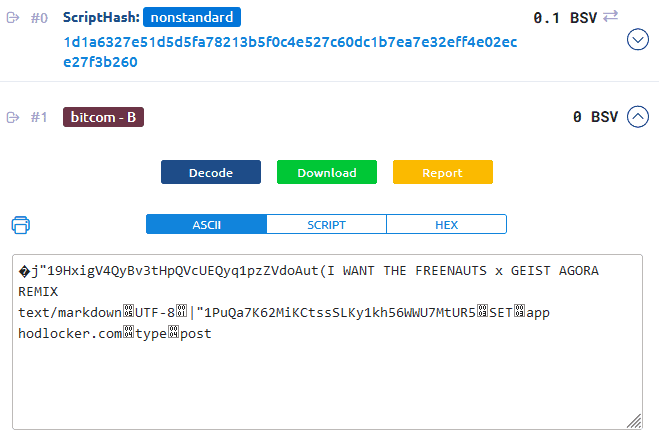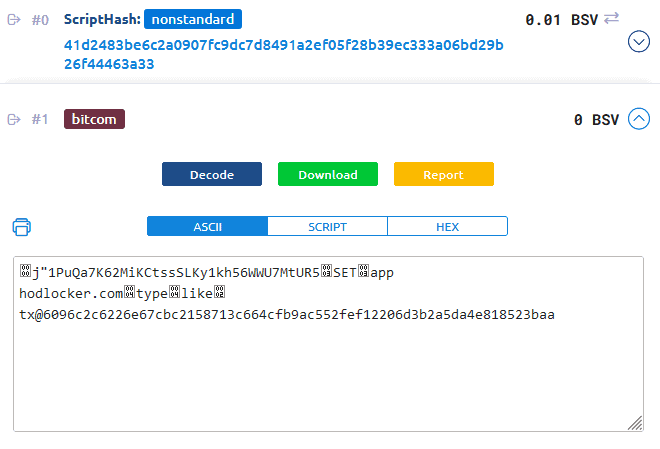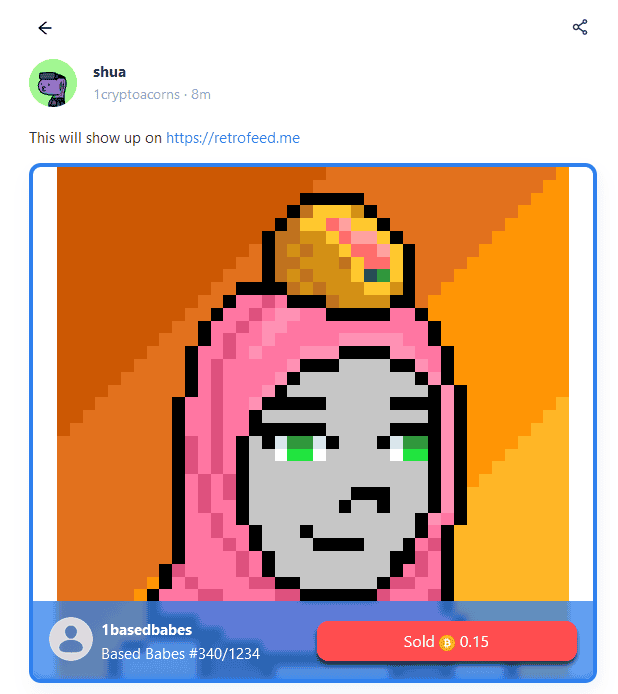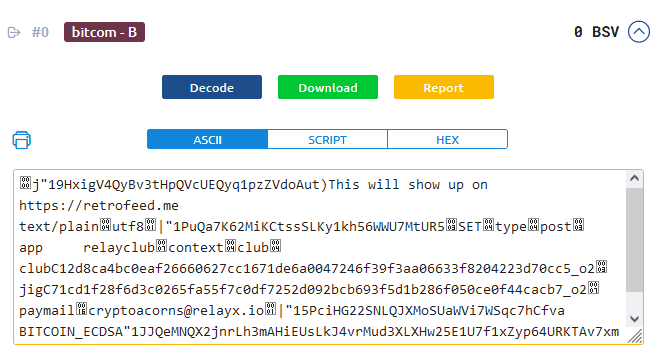|
Getting your Trinity Audio player ready...
|
Hodlocker, the first social network around users locking up Bitcoin SV (BSV) coins, is built entirely on Open Protocols implemented directly in Bitcoin script. The idea of building a social network around locking coins, first incepted and promoted by RelayX founder Jack Liu and created by developer zer0_dt_, emphasized this point recently on X Spaces (around 1:07:30). RelayX did so in their implementation of Relay Club with Order Lock and Bitcoin Schema.
Implementing these protocols by making the data available publicly on-chain ensures that the application will never truly die.
While Hodlocker does have an interface and login requirement with RelayX, the entire application could be reconstructed independently of those two domains simply from the transactions on the blockchain. The fact that BSV blockchain community members still have these baseless concerns of Hodlocker “rugging” demonstrates that these concepts are still not widely understood, even on what is believed to be the most scalable public blockchain.
Currently, two interactions exist: locking coins into a post and liking a user’s post by locking coins against it.
Lock post example:

Lock like example:

Notice the data is formatted in a way that other applications could easily interpret. The bitcom protocols were first established on BSV back in 2019 by then prolific developer _unwriter and are the foundation for what is now Bitcoin Schema that the Twetch,
Blockpost, Bitchat, Relay Club, Retrofeed, Pewnicorn Social Club, and now Hodlocker implement.
These open protocols encourage innovation and create a shared network effect. Regretfully, the BSV blockchain community has shied away from this collaboration in the past, where formerly open systems close or fork off (ex., Twetch) or where never interoperable in the first place. However, all systems do not need to be identical. Building atop the same structured base is important, but protocols already exist to extend and customize where necessary.
Relay Club’s extension of the bitcom protocol is the best example of customizing atop bitcom to meet their requirements. Using MAP created by prolific developer Luke Rohenaz (Wild Satchmo), RelayX extended bitcom with on-chain RUN NFT and paymail references so that any other independent application can provide the same functionality.


Notice on retrofeed.me, I can derive all necessary information but limit or enhance functionality if desired. I do not have to give users the ability to purchase the non-fungible token (NFT), but can at least show the image. At the same time, I could allow purchasing but take my own trading fees while paying referrals to users that share orders from a collection.
Another reason to build atop fixed, open protocols is the ease of indexing. Building a tool to download these transactions and put them in a formatted database is hard enough, but if the indexer is coded to handle a certain ruleset, that effort becomes much easier. When new applications implement the same protocol, the indexer will pick those posts up with no issues or manual triage. If an application does launch with traction on a new protocol, then more effort to index is needed when that could be spent iterating on apps that are already interoperable instead.
The key point is if Hodlocker.com and RelayX took down their servers today, no data or funds would be lost. Another website could arise showing the exact same content, with a better user experience. Perhaps most importantly, if Hodlocker itself only took a few days to be built, then subsequent clients should take even less time. This is the reason to adhere to open protocols on-chain.
Watch The Original Bitcoin Protocol: What is it and Why does it Matter

 03-05-2026
03-05-2026 




